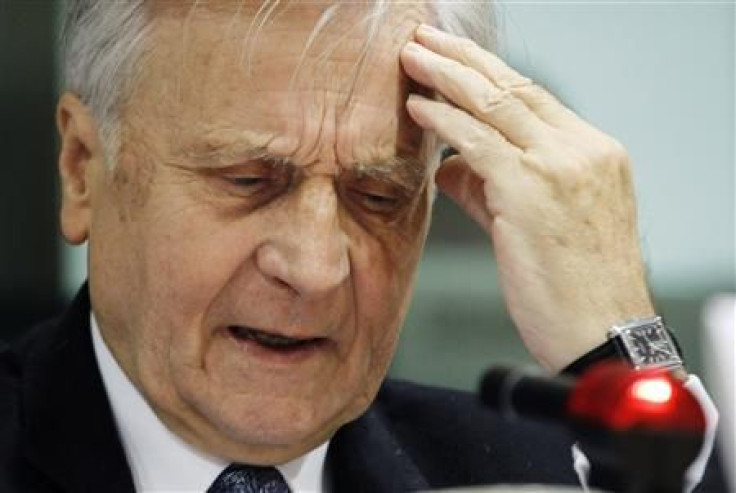ECB Head Sees Systemic Threat, Wants Europe Banks Funded

The euro zone sovereign debt crisis has become systemic and risks to the economy are increasing rapidly with Europe's banks in the danger zone, European Systemic Risk Board Chairman Jean-Claude Trichet warned Tuesday.
Trichet, who heads the European Central Bank as well as the continent's super-watchdog on financial stability, said the European Financial Stability Facility bailout fund should be made as flexible as possible, but without involving the ECB in leveraging it.
"Over the past three weeks, the situation has continued to be very demanding. The crisis is systemic and must be tackled decisively," Trichet told the European Parliament's Committee on Economic and Monetary Affairs.
"The high interconnectedness in the EU financial system has led to a rapidly rising risk of significant contagion. It threatens financial stability in the EU as a whole and adversely impacts the real economy in Europe and beyond."
Trichet called for governments and European authorities to act together to solve the crisis, adding that delay would be disastrous.
"It is a matter of urgency that all authorities act in unison, with total commitment to safeguarding financial stability," he said.
The ESRB is designed to take a bird's eye view of Europe's financial system and flag up any emerging problems for relevant authorities to act on.
It has no formal teeth, although if it is not satisfied with authorities' reactions, it has the option of going public with its fears.
RECAPITALISING BANKS
Trichet called for a clear decision on recapitalizing banks, saying there was no time to lose.
Commercial banks have become increasingly wary of lending to each other, more often turning to the ECB for funding and deposits.
Overnight deposits at the 17-country bloc's central bank shot up to 269 billion euros on Tuesday, the highest since June 2010, indicating eroding trust between banks.
The leaders of Germany and France gave investors hope on Sunday night by promising a plan soon to recapitalize Europe's banks.
However, investors remain cautious due to the lack of detail about the plan, and the risk that a solution may be derailed by an event such as political deadlock in Slovakia, the one euro country that has yet to approve the EFSF expansion.
"The banking sector in Europe needs recapitalization, that is part of our message," Trichet said.
"Decisions have to be taken and taken very rapidly, I expect this decision to be taken as rapidly as possible."
Turning to the role of the European bailout fund, the EFSF, he said it could play an important role.
"Supervisors must coordinate efforts to strengthen bank capital, including having recourse to backstop facilities, and also taking into account the need for a transparent and consistent valuation of sovereign exposures," he said.
"The possibility for the EFSF to lend to governments in order to recapitalize banks -- including, if necessary, in non-program countries -- could be of benefit here," he said.
But while calling for the fund to be "as flexible as possible", he rejected using the ECB to leverage it, adding that governments had all the means necessary to leverage it without involving the central bank.
(Reporting by Sakari Suoninen, editing by Mike Peacock)
© Copyright Thomson Reuters 2024. All rights reserved.











